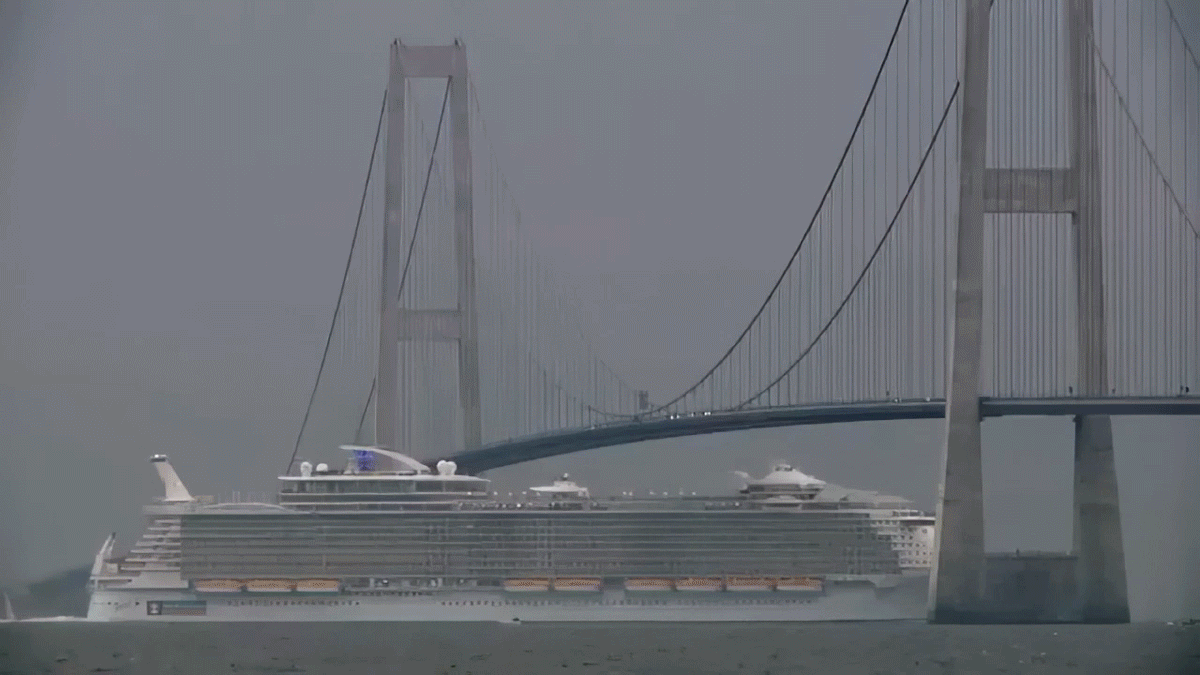With oceans covering 71 percent of the Earth’s surface, it’s easy to assume that cruise ships never have any issues maneuvering. However, the world’s largest all-inclusive cocktail dispensers must take extreme measures to sail underneath suspension bridges. Ships are designed with features to duck under the road deck and crews are encouraged to punch it, helping the boat get as low as possible.
Royal Caribbean, the operator of current record-breaking vessels, contracts its cruise ships to be built in shipyards on Finland’s Baltic coast. While allowing for the construction of ships that dwarf the Titanic, newly built behemoths must traverse Denmark to leave the Baltic Sea and hit the open ocean. The Great Belt Bridge, the sixth-long suspension bridge in the world, spans the Danish strait of the same name.
Allure of the Seas had less than three feet to power under the same bridge in 2010. Allure is equipped with extractable funnels, which reduce its height by 13 feet. A Royal Caribbean promotional video shared by CruiseGuy documented the first voyage through the Great Belt. This feature was introduced on its older sibling, Oasis of the Seas, and carried forward to every Royal Caribbean ship afterward.
Crews use old-school tricks paired with the modern toolbox to navigate under bridges safely. For example, they can fill ballast tanks with seawater to reduce the height above the waterline. Allure of the Seas has a ballast tank capacity of 555,606.7 gallons, weighing over 2,150 tons when filled. Crews can also sail as fast as possible. A suction effect will pull vessels downward in narrow bodies of water.
We learned this year in Baltimore how dangerous underbridge crossing can be for ships. It isn’t simply a scaled-up version of a box truck hitting a low-hanging bridge. Collisions of that magnitude damage ships, destroy bridges and kill people. Ship operators must do everything possible to keep a safe margin between their boats and every road deck on the planet.

